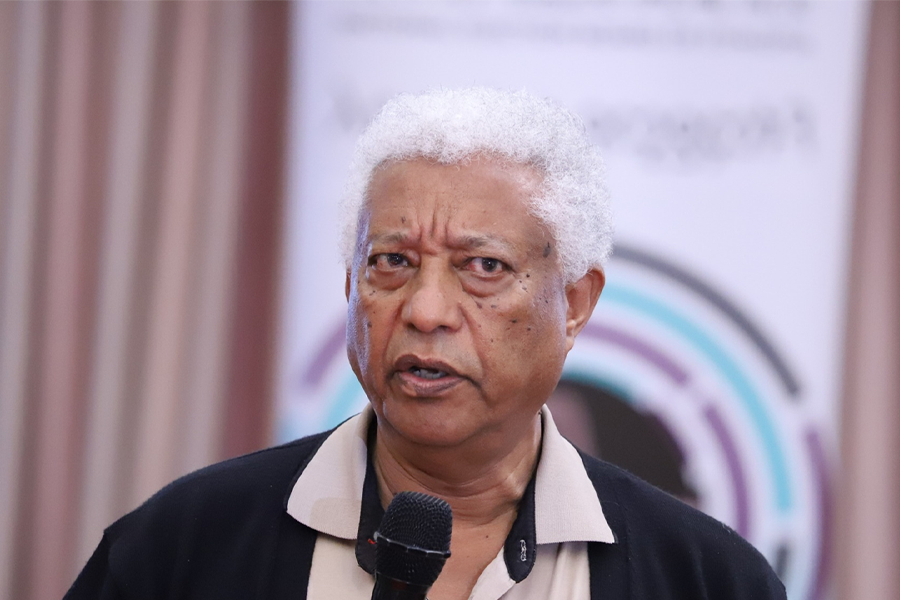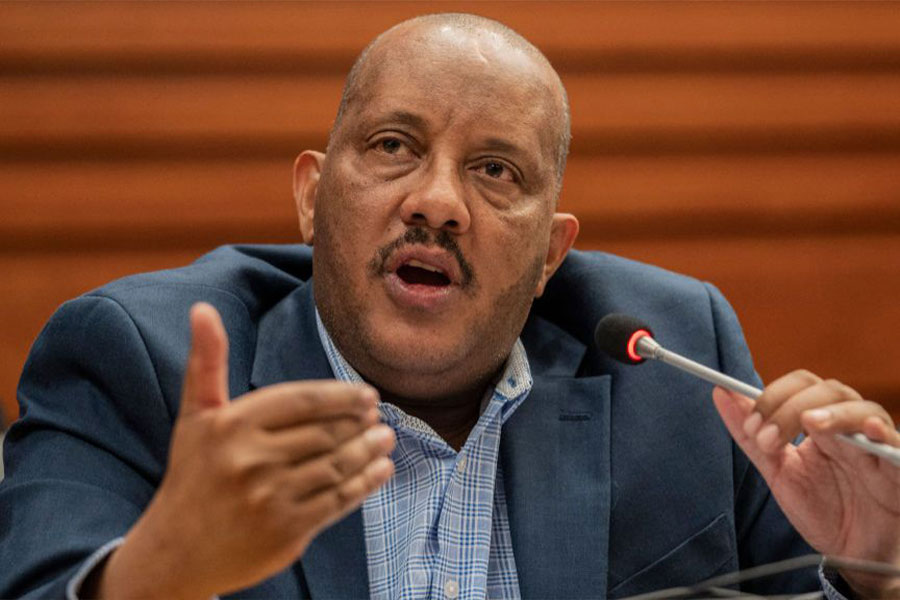
May 18 , 2019
By Abdi Zenebe (PhD)
The last three successive political transitions in Ethiopia witnessed, in relative terms, a stable political transfer of power at the last phase of the struggle.
Take the fall of the Imperial regime. Haile Selassie with his Imperial Guard was unable to engage the low-ranking military officers who took power. This kept the political structure intact, to a degree, and functional. It underwent a less disruptive transition and maintained the bureaucracy for awhile.
Similarly, although the Derguewas defeated militarily, Mengistu's decision to escape at the last minute brought a relative, but significant, stability to the centre of power. His contemporary, Siad Barre of Somalia, refused to concede defeat, which is one of the reasons for the continued mayhem in Somalia. Siad Barre’s decision not to abandon Villa Mogadishu, official residential palace of Somali presidents, and the heavy fighting that ensued created a heavy toll on human life has thwarted what would have been a relatively stable political transition.
In today's politics, the dominant politico-military groups’ reception of the proponents of the ongoing change is a commendable and been courageous decision that has not given much attention. Understanding this process is crucial for several reasons.
The process of healing a country from a protracted state of political decay encompasses a broader political framework that engulfs every corner and view in the country. Hence, the retreat should not be portrayed in the sense of realpolitik that sees the world only in duality - winners and losers. Such a notion is not only destructive but also marginalising and has a potential to create discord among the people of the country.
The retreat is the outcome of the ultimate decision by political forces inside a consitituent party of the EPRDF that has long been believed to be the most dominant, the TPLF. There is no denial here about the presence of immense pressure. However, a political decision was made to facilitate a relatively smooth transition, which indicates the presence of persons of reason that require sustainable assistance. The relatively, bloodless and definitely less radical transition would not have been likely otherwise.
The narrative that reminds us that there are political actors within the TPLF that stand with the forces of change will pave the way to build bridges between mid- and low-level political officials across the EPRDF political spectrum. The actors that control the extensive and exhaustive bureaucracy in Ethiopia have a bigger and historical responsibility for the future wellbeing of the country.
The relatively peaceful transition of power provides a lesson that excessive stubbornness will lead to a security breakdown that invites external actors with vested interests. One of the biggest worries we have today concerning Sudan is that, unless the Sudanese are able to come to a compromise, their capacity to decide their own future grows dimmer. It would be a repeat of what occurred in Syria, Yemen and Libya. It is the external powers that have the upper hand on the political and security crisis unfolding.
Similarly, the temptation by regional and world powers to have an influence on Ethiopia is understandable, at least given the nation’s geographical significance. A guaranteed way of resisting external pressure is the capacity to reach a compromise internally. We must learn to refrain from a mob mentality and learn to adhere to the law of the land. A house is much more likely to fall when it decays from the inside.
For the vast majority of bewildered TPLF supporters, such recognition is a reminder of the authentic zeitgeist of the political transition in Ethiopia. This transition is not about creating winners or losers. It is about a collective search for the optimal structural and systemic means toward peaceful co-existence and socio-economic betterment.
More importantly, the continued process of transition and impetus for its successes widen the appetite to invite the active involvement of all concerned bodies. The active, constructive involvement and contribution of citizens from all corners will enable us to prepare the perfect dress for Ethiopia that engulfs and embellishes it.
PUBLISHED ON
May 18,2019 [ VOL
20 , NO
994]


Fortune News | Oct 27, 2024

Commentaries | Dec 30,2023

Viewpoints | Jul 25,2020

My Opinion | Aug 07,2021

Verbatim | Mar 19,2022

Fineline | May 02,2020

Verbatim | Apr 13, 2025

Commentaries | Mar 25,2023

Editorial | Feb 01,2020

Editorial | Oct 16,2021

My Opinion | 131658 Views | Aug 14,2021

My Opinion | 128022 Views | Aug 21,2021

My Opinion | 125985 Views | Sep 10,2021

My Opinion | 123609 Views | Aug 07,2021

Dec 22 , 2024 . By TIZITA SHEWAFERAW
Charged with transforming colossal state-owned enterprises into modern and competitiv...

Aug 18 , 2024 . By AKSAH ITALO
Although predictable Yonas Zerihun's job in the ride-hailing service is not immune to...

Jul 28 , 2024 . By TIZITA SHEWAFERAW
Unhabitual, perhaps too many, Samuel Gebreyohannes, 38, used to occasionally enjoy a couple of beers at breakfast. However, he recently swit...

Jul 13 , 2024 . By AKSAH ITALO
Investors who rely on tractors, trucks, and field vehicles for commuting, transporting commodities, and f...

Jun 28 , 2025
Meseret Damtie, the assertive auditor general, has never been shy about naming names...

Jun 21 , 2025
A well-worn adage says, “Budget is not destiny, but it is direction.” Examining t...

Jun 14 , 2025
Yet again, the Horn of Africa is bracing for trouble. A region already frayed by wars...

Jun 7 , 2025
Few promises shine brighter in Addis Abeba than the pledge of a roof for every family...

Jun 29 , 2025
Addis Abeba's first rains have coincided with a sweeping rise in private school tuition, prompting the city's education...

Jun 29 , 2025 . By BEZAWIT HULUAGER
Central Bank Governor Mamo Mihretu claimed a bold reconfiguration of monetary policy...

Jun 29 , 2025 . By BEZAWIT HULUAGER
The federal government is betting on a sweeping overhaul of the driver licensing regi...

Jun 29 , 2025 . By NAHOM AYELE
Gadaa Bank has listed 1.2 million shares on the Ethiopian Securities Exchange (ESX),...